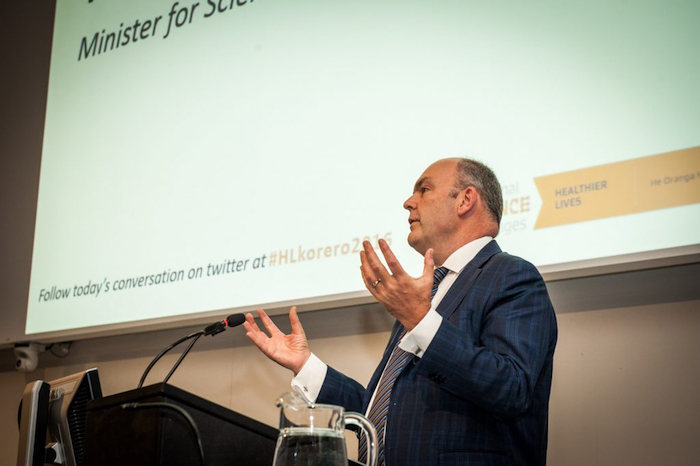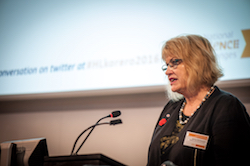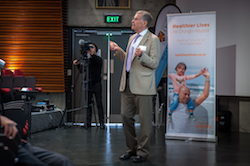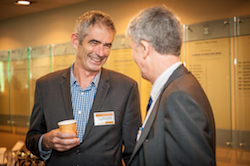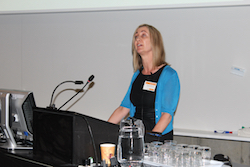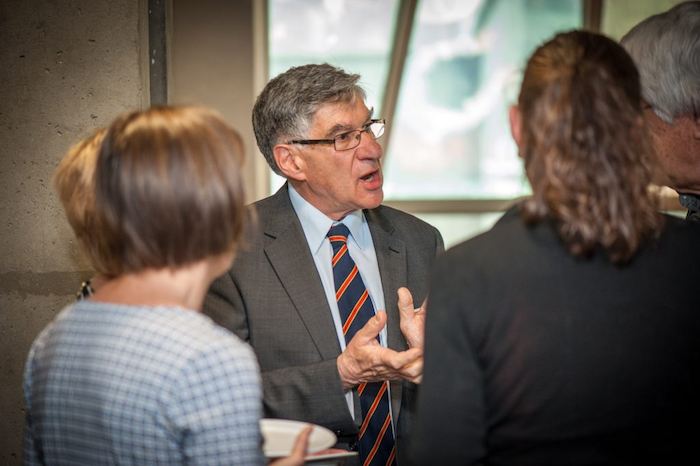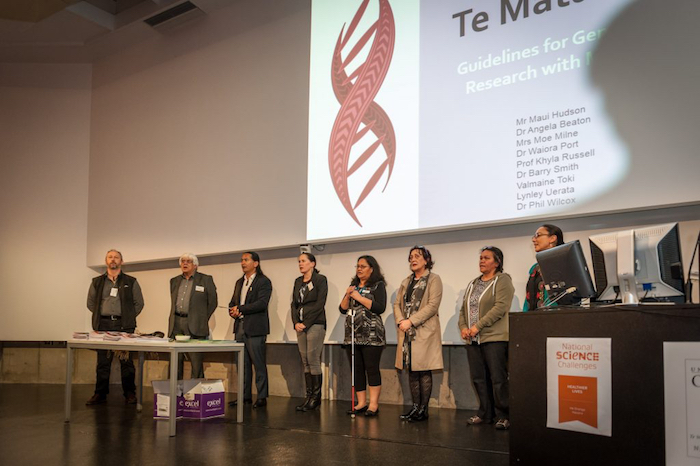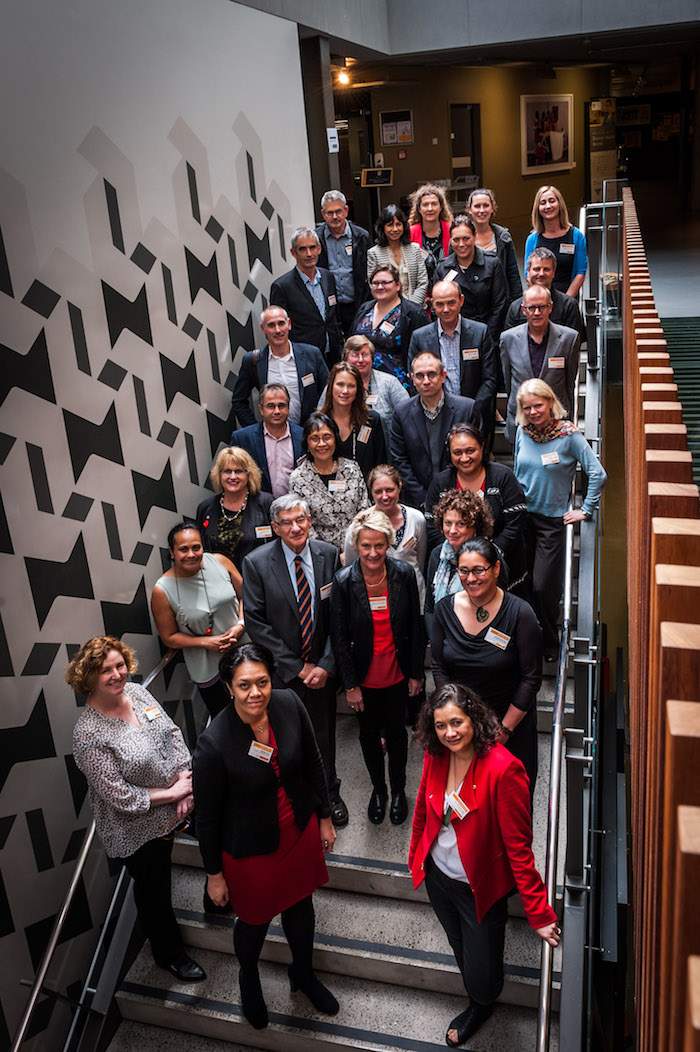Symposium: Healthier Lives Kōrero Tahi 2016
18 October 2016
Researchers, communities, practitioners and policymakers building healthier communities together
Healthier Lives Kōrero Tahi 2016 was an opportunity to hear about early research in the Healthier Lives Challenge. This was the first research symposium, held in Wellington on 18 October 2016. The aim of the event was to start or build on conversations with fellow researchers and stakeholders.
The Minister of Science and Innovation Hon Steven Joyce opened the Kōrero Tahi and introduced Healthier Lives in context of the other National Science Challenges. He explained that the research is mission-led and needs to demonstrate a clear translation into policy and implemented into practice.
View the 2016 Kōrero Tahi opening and presentations in our video album (15 videos of between 9 and 25 minutes)
Healthier Lives overview
Healthier Lives Chair Jenny McMahon and Director Professor Jim Mann provided an overview and said Healthier Lives pulls together many people—researchers and communities—from all around the country, to resolve some of New Zealand’s big health problems and issues. Professor Mann said the Kōrero Tahi aimed to get people involved in the conversation, and thinking about how to collaborate to combat these non-communicable diseases (NCDs).
Global and local perspective
Emeritus Professor Robert Beaglehole set the scene for NCDs in New Zealand in the global context. He emphasised that although the causes are well known and progress has been made in reducing NCD death rates, especially in high-income countries, there is great scope for more rapid progress. “This will require stronger and more coordinated efforts, especially in response to the global drivers of the NCD pandemic,” he said.
Several other stakeholders spoke about the impact of NCDs from a range of important perspectives, including Professor John Potter and Dr Andrew Simpson from the Ministry of Health, Dr Andrew Sporle, a member of the He Oranga Hauora Kāhui Māori, and Dr Gerry Devlin from the National Heart Foundation.
Some of the Healthier Lives researchers gave summaries of their early stage research. We describe a few examples here but you can view the videos for full coverage:
Videos from the day
View the 2016 Kōrero Tahi opening and presentations in our video album (15 videos of between 9 and 25 minutes)
Research projects
One Healthier Lives project seeks to find early risk factors for heart disease and diabetes in different ethnic groups. Another aims to make health interventions work for Māori communities and deliver culturally-centred health initiatives, to address health inequities. Yet another is using New Zealand’s huge resource of health data to find out the impact of Canterbury earthquake damage on hospital admissions for cardiovascular disease.
Professor Parry Guilford said that Healthier Lives projects will work towards greatly reducing the economic and health burden of diseases like cancer in New Zealand. His team is developing minimally invasive biomarkers for cancer detection, with an emphasis on circulating tumour DNA for melanoma and colorectal cancer. “We hope to find earlier and more targeted treatments. These cancers have been selected because their incidence in New Zealand is amongst the highest in the world.”
Professor Cliona Ni Mhurchu spoke about her early stage co-designed lifestyle support programme with Maori and Pasifika communities. The programme will be delivered by mobile phone—the ‘mHealth approach’ aiming to get greater buy-in and engagement from participants because they actually help design the solution.
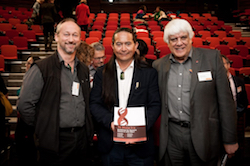
Another highlight of the day was the launch of the Te Mata Ira Guidelines for Genomic Research, and He Tangata Kei Tua Guidelines for Biobanking with Māori. In the photo from left Dr Phil Wilcox, Toa Waaka, and Dr Barry Smith, with the new resources for researchers.
More images from our day:
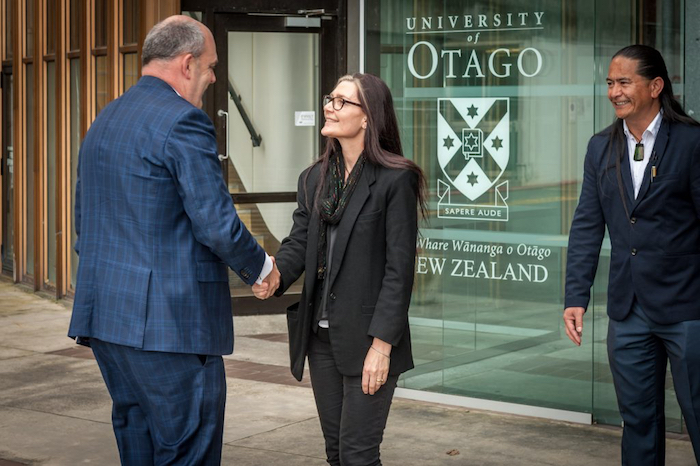
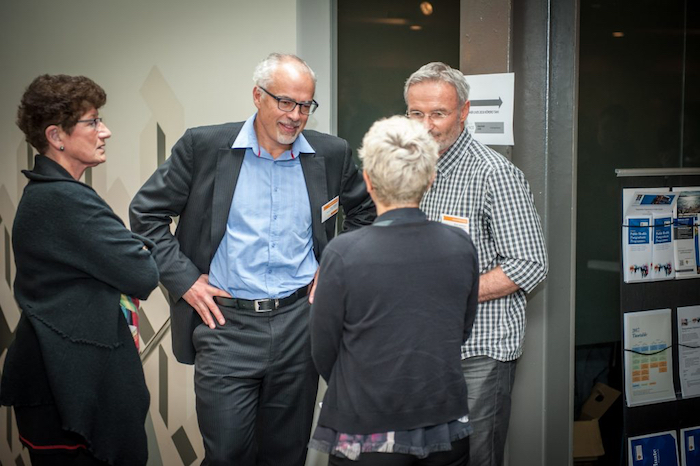
This story was originally published on 2 February 2017.
